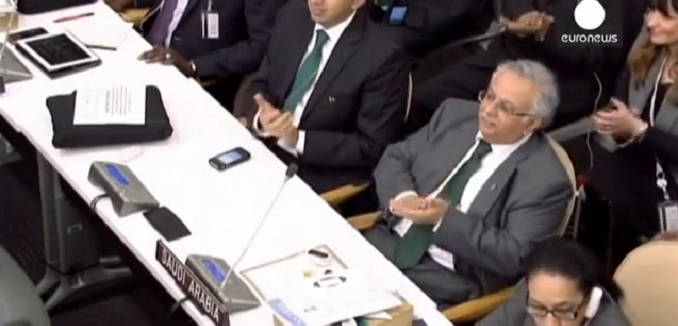Washington Post associate editor David Ignatius expressed surprise yesterday at what he described as “the White House’s inability to convey [to Saudi Arabia]… desired reassurances” regarding U.S. policy in the Middle East, declaring that the Obama administration’s “lack of communication with the Saudis and other Arab allies is mystifying.” He conveys mostly private concerns – aired by diplomats from Saudi Arabia, Egypt, Jordan, the United Arab Emirates, and Israel – worrying that the U.S. influence in the region has been “shredded” by administration policies too indulgent of the Egyptian Muslim Brotherhood, too indecisive on Syria’s Bashar al-Assad regime, and insufficiently skeptical of Iranian intentions.
Saudi Arabia obviously wants attention, but what’s surprising is the White House’s inability to convey the desired reassurances over the past two years. The problem was clear in the fall of 2011, when I was told by Saudi officials in Riyadh that they increasingly regarded the U.S. as unreliable and would look elsewhere for their security… The administration’ lack of communication with the Saudis and other Arab allies is mystifying at a time when the U.S. is exploring new policy initiatives, such as working with the Russians on dismantling chemical weapons in Syria and negotiating a possible nuclear deal with Iran.
Ignatius’s assessment comes shortly after a Wall Street Journal scoop describing Saudi moves to scale back cooperation between Riyadh and Washington. On Tuesday former Saudi spy chief Prince Turki al-Faisal specifically criticized the Russian plan for disposing of Syrian chemical weapons, accepted by U.S. diplomats, as a “charade” that the U.S. was using as a pretext to back down. In a move that received broad praise from its regional Arab allies, Riyadh last week rejected a seat on the 15-member United Nations Security Council, with Saudi officials declaring that they were frustrated with the body’s inaction in the Middle East and Prince Bandar Bin Sultan al-Saud reportedly telling diplomats that the decision “was a message for the U.S., not the U.N.”
[Photo: Euronews / YouTube]




